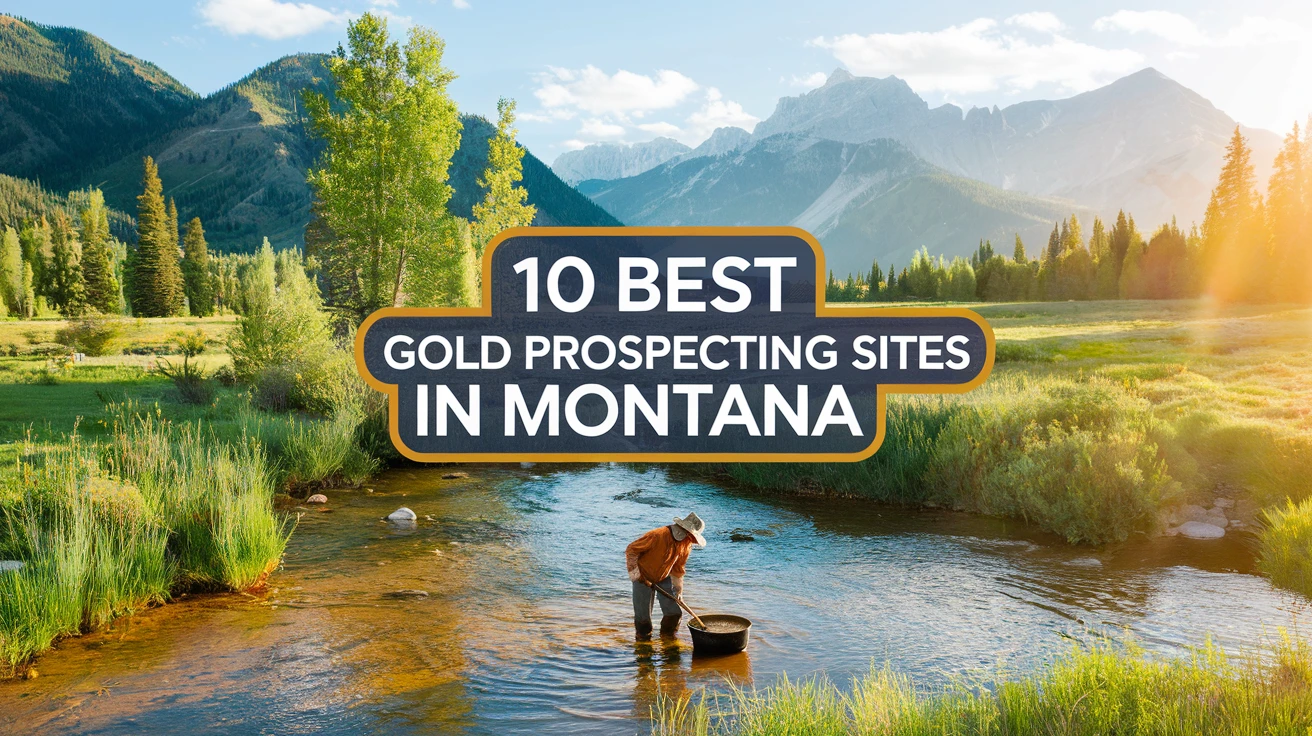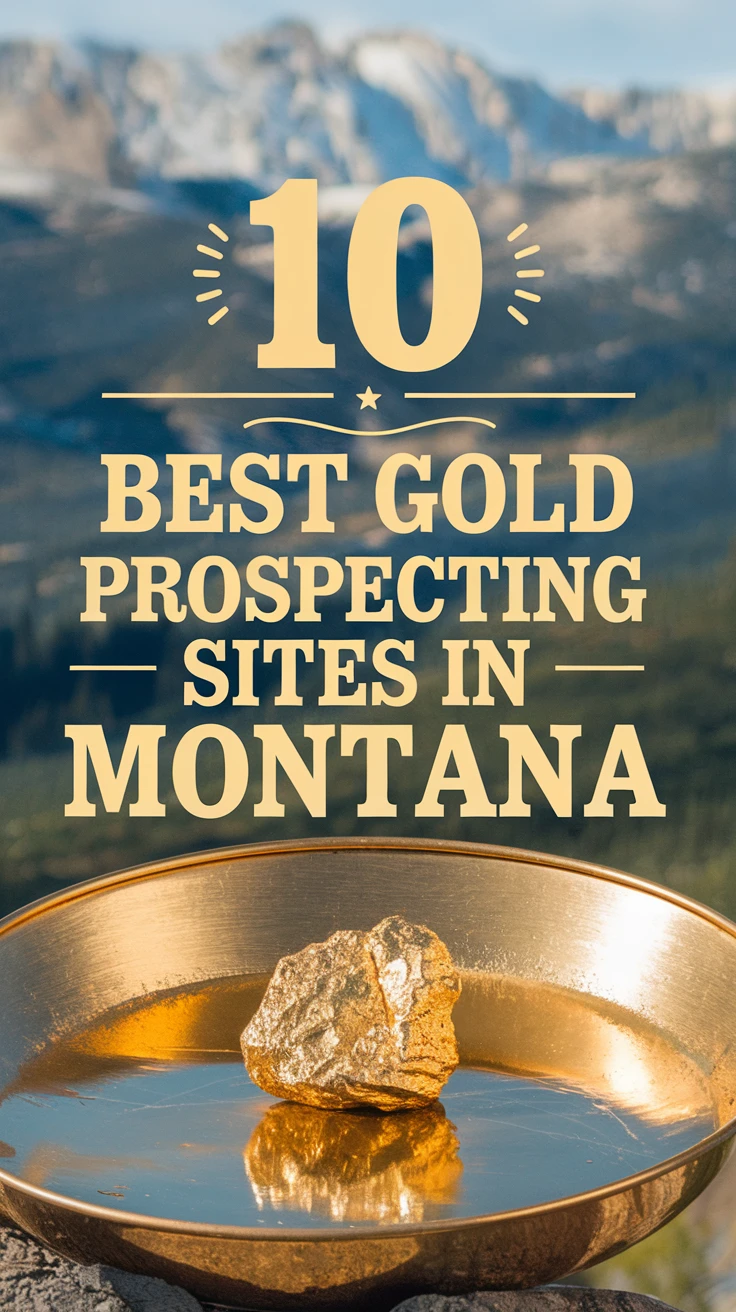
Montana’s rich gold mining history dates back to the 1860s when the first major gold strikes drew thousands of prospectors to the Treasure State. Today, this legacy continues as modern-day adventurers seek their fortune in Montana’s streams, rivers, and historic mining districts. Whether you’re a seasoned prospector or a newcomer to the excitement of gold hunting, Montana offers some of the most promising locations in the United States for finding that elusive yellow metal. In this comprehensive guide, we’ll explore the top 10 gold prospecting sites in Montana, complete with essential information about accessibility, regulations, and potential yields.
Essential Equipment for Montana Gold Prospecting
Before we dive into the specific locations, let’s ensure you’re properly equipped for success. Here’s what you’ll need:
| Basic Equipment | Estimated Cost | Importance Level |
|---|---|---|
| Gold Pan | $10-20 | Essential |
| Sluice Box | $100-200 | Recommended |
| Classifier Set | $30-50 | Essential |
| Snuffer Bottle | $5-10 | Essential |
| Mining Shovel | $20-30 | Essential |
Additional essential items include:
– Rubber boots or waders
– Sun protection
– First aid kit
– GPS device
– Local maps
– Water and snacks
– Extra clothing
Top 10 Gold Prospecting Sites in Montana
1. Alder Gulch
Located in Madison County, Alder Gulch stands as Montana’s most productive historical gold site. Modern prospectors can still find good quantities of placer gold here. The area is accessible via Highway 287, and the best season for prospecting is late spring through early fall.
2. Confederate Gulch
This historic mining district near Helena produced millions in gold during its heyday. Today, prospectors can find both fine gold and occasional nuggets in the creek and surrounding areas. Access requires a 4WD vehicle during certain seasons.
3. Last Chance Gulch
Now downtown Helena, this area offers unique urban prospecting opportunities. While you won’t be panning in the streets, nearby creeks still yield gold. The area is easily accessible and perfect for beginners.
4. Gold Creek
The site of Montana’s first gold discovery, Gold Creek continues to produce. The creek and surrounding area offer excellent opportunities for both panning and sluicing. Public access points are well-marked.
5. Emigrant Gulch
Located in Paradise Valley, this site offers beautiful scenery along with good gold prospects. The area is known for both placer and lode gold deposits. Best accessed during summer months due to high elevation.
6. Bear Gulch
This lesser-known location in the Sweet Grass Hills region offers good prospects with less competition. Fine gold is common, with occasional larger pieces found. A high-clearance vehicle is recommended.
7. Montana Bar
Famous for its ruby-rich gravels containing gold, this location near Virginia City requires special permits but can be very rewarding. Known for producing larger nuggets historically.
8. Bannack State Park
While actual mining isn’t allowed within the park, nearby areas offer good prospecting opportunities. The Grasshopper Creek area outside the park boundaries remains productive.
9. Cedar Creek
Located in western Montana, Cedar Creek offers good prospects for fine gold. The area is accessible most of the year and provides multiple good panning locations.
10. Highland Mountains
This region south of Butte offers numerous creeks and gulches for prospecting. Fish Creek and other tributaries in the area have historically produced good results.
Seasonal Prospecting Guide
| Season | Best Locations | Special Considerations |
|---|---|---|
| Spring | Lower elevation sites | High water levels, cold temperatures |
| Summer | All locations accessible | Crowded popular sites, best overall conditions |
| Fall | Mid to low elevations | Comfortable temperatures, lower water levels |
| Winter | Limited access sites | Frozen ground, dangerous conditions |
Legal Requirements and Safety Tips
Essential legal considerations:
– Montana requires a recreational mining license
– Some areas require additional permits
– Respect claim markers and private property
– Check local regulations before prospecting
– Keep required documentation on hand
Safety priorities:
– Never prospect alone
– Carry emergency communications
– Check weather forecasts
– Bring adequate water and supplies
– Know local wildlife precautions
Conclusion
Montana’s gold prospecting opportunities continue to attract enthusiasts from around the world. While the days of easy gold may be past, dedicated prospectors can still find success at these locations. Remember to always follow local regulations, respect the environment, and practice safe prospecting techniques. Whether you’re seeking fortune or just enjoying the outdoor adventure, Montana’s gold fields offer something for everyone.
Key Takeaways
- Proper equipment and preparation are essential for successful prospecting
- Many historic gold locations still produce good results
- Seasonal considerations greatly affect prospecting success
- Legal compliance and safety should always be top priorities
- Multiple accessible locations suitable for both beginners and experienced prospectors
Frequently Asked Questions
Do I need a permit to prospect for gold in Montana?
Yes, you need a recreational mining license at minimum, and some areas require additional permits.
What is the best time of year to prospect in Montana?
Late spring through early fall offers the best conditions, with summer being ideal for most locations.
Can I keep the gold I find?
Yes, if you’re prospecting on public lands with proper permits or private land with permission.
What type of gold is most commonly found in Montana?
Placer gold is most common, ranging from fine gold to occasional nuggets.
How much does it cost to start gold prospecting in Montana?
Basic equipment costs around $200-300, plus licensing fees and travel expenses.
Are there any restricted areas for prospecting?
Yes, including state parks, private property, and active mining claims.
What’s the average success rate for finding gold?
Success varies greatly, but most prospectors find at least some gold with proper technique and location selection.
Can I use a metal detector for gold prospecting?
Yes, but specific regulations may apply, and not all areas allow metal detecting.
Are there guided prospecting tours available?
Yes, several companies offer guided tours and training for beginners.
What should I do if I find a significant gold deposit?
Consult with local authorities and consider filing a mining claim if on public land.

